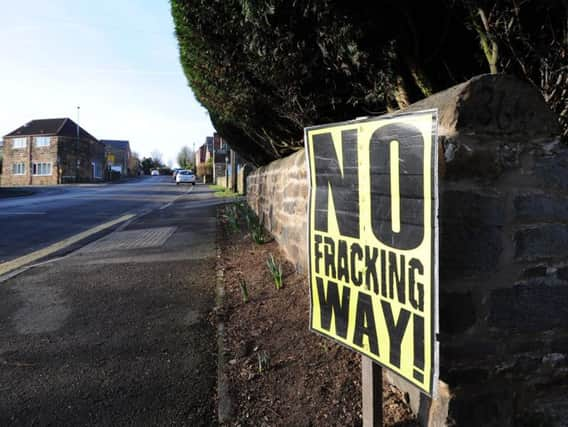Over 3,000 objections to fracking exploration plans at Marsh Lane


Derbyshire County Council’s planning committee is offering local anti-fracking groups the chance to make representations at a meeting on Monday when it considers the development at Marsh Lane, near Sheffield.
More than 3,000 objections from local residents were received in respect of the Marsh Lane site, with just nine people expressing support for it. A further 67,000 people across the world had signed a petition against fracking in Derbyshire that was also submitted to the council.
Advertisement
Hide AdAdvertisement
Hide AdMike Ashworth, Derbyshire County Council’s strategic director for economy, transport and environment, said: “We’re aware of the depth of feeling about this planning application and have
reviewed our approach to the meeting next week so that the committee has a chance to hear views from relevant parties speaking for and against the proposal.
"Our planning committee considers each item on its individual merits and is impartial. Each planning decision is based on objective analysis of evidence, taking into account local and national planning policies and relevant comments of the public and official consultees such as parish councils.”
Once the committee has decided on the council’s position, it will be sent to the Planning Inspector ahead of June’s public inquiry to be taken into account when
Advertisement
Hide AdAdvertisement
Hide Addeciding whether to grant planning permission for the development.
Earlier this week, the planning committee decided not to deal with a repeat application from Ineos for the same development. The firm submitted the second application for identical development − a process known as “twin-tracking” − soon after it made an appeal to the Planning Inspectorate.
Mr Ashworth said: “Processing the second application would also have been expensive with no guarantees that we would have been in a position to decide on the application before the public inquiry is concluded.”